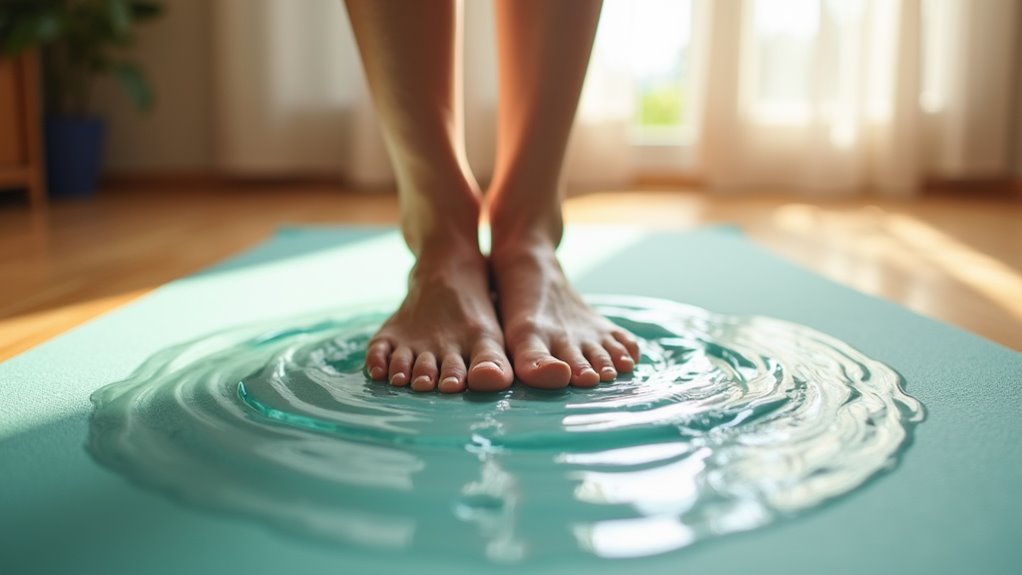Vertigo Relief Remedies That Bring Back Balance
You can find relief from vertigo through several proven remedies that restore balance. Start with the Epley maneuver to reposition inner ear crystals, practice gaze stabilization exercises, and maintain proper hydration. Essential lifestyle changes include limiting caffeine, alcohol, and sudden head movements. Try balance-focused activities like tai chi or yoga, and consider vestibular rehabilitation therapy. Discovering the right combination of treatments will help you regain stability and control.
Understanding Vertigo: Causes and Symptoms
While many people incorrectly use the term vertigo to describe general dizziness, true vertigo is a distinct sensation of spinning or tilting, where you feel as if either you or your surroundings are in motion when they’re actually still.
Common causes include inner ear problems, vestibular neuritis, Meniere’s disease, or BPPV (Benign Paroxysmal Positional Vertigo).
You might experience nausea, vomiting, balance problems, or headaches alongside the spinning sensation.
Before seeking vertigo relief remedies, it’s crucial to identify the underlying cause through proper medical diagnosis, as treatment approaches vary depending on the specific trigger.
Essential Home Remedies and Lifestyle Changes
When experiencing vertigo symptoms, you can implement several practical home remedies and lifestyle modifications to help manage your condition.
Start by maintaining proper hydration and adopting a balanced diet rich in vitamins B12 and D. Practice the Epley maneuver under medical guidance to reposition displaced ear crystals.
Ensure adequate sleep and reduce stress through meditation or yoga. Avoid sudden head movements, and incorporate balance exercises into your daily routine.
Limit alcohol, caffeine, and nicotine consumption. Keep your living space well-lit and remove trip hazards to prevent falls during dizzy spells. Additionally, maintaining proper hydration is crucial, as dehydration can be a common trigger for dizziness.
Medical Treatments and Professional Care Options
Professional medical care offers targeted solutions when home remedies alone don’t provide sufficient relief from vertigo symptoms. Your doctor may prescribe medications like antihistamines, anti-nausea drugs, or diuretics to manage symptoms and underlying causes.
Physical therapy, particularly vestibular rehabilitation exercises, can help retrain your balance system.
For severe cases, your healthcare provider might recommend specialized procedures such as the Epley maneuver, canalith repositioning, or surgery for conditions like Ménière’s disease.
If you’re experiencing recurring vertigo episodes, don’t hesitate to seek professional evaluation to determine the root cause and receive appropriate treatment.
Physical Exercises and Movement Techniques
Several targeted exercises and movement techniques can effectively alleviate vertigo symptoms and improve balance function.
The Epley maneuver helps reposition displaced calcium crystals in your inner ear, while the Brandt-Daroff exercise trains your brain to better handle balance disruptions. You’ll find relief through the Semont maneuver, which involves rapid head movements in specific sequences.
For ongoing maintenance, try gaze stabilization exercises that strengthen eye-tracking abilities.
Practice standing balance exercises on different surfaces, and incorporate head rotation movements while walking.
These techniques work best when performed consistently under your healthcare provider’s guidance.
Prevention Strategies for Long-Term Balance
Maintaining long-term balance requires a comprehensive lifestyle approach that addresses multiple risk factors.
You’ll need to manage blood pressure, control blood sugar levels, and limit alcohol consumption. Keep your home environment safe by removing trip hazards and installing proper lighting.
Regular eye exams and updated prescriptions help maintain visual accuracy, while adequate vitamin D and calcium intake supports bone health.
Stay physically active with balance-focused exercises like tai chi or yoga. If you’re taking medications, review them with your doctor, as some can affect balance.
Get enough sleep and manage stress levels to support your nervous system’s optimal function. Additionally, implement stress management techniques to mitigate the impact of psychological stress on vestibular disorders.







